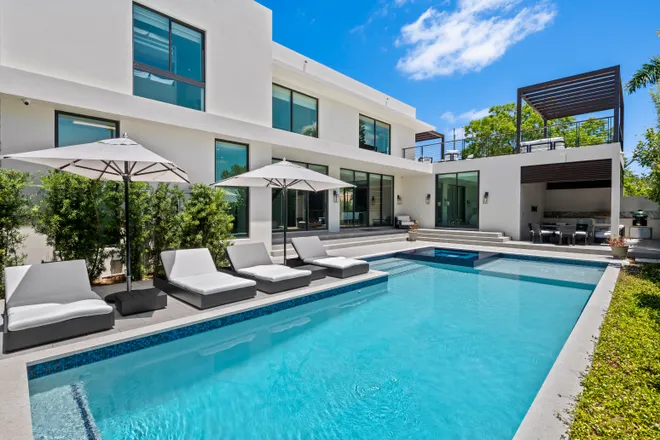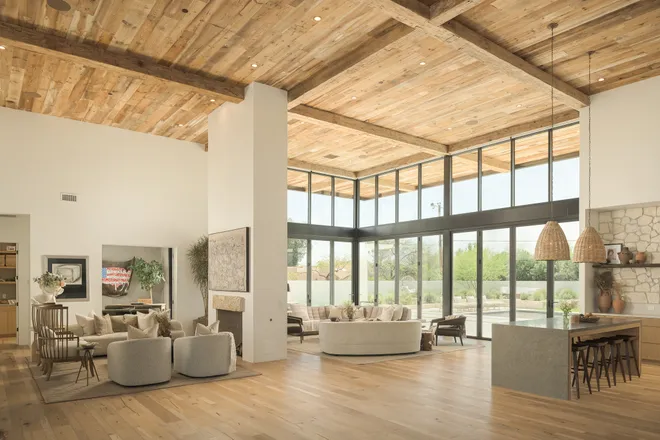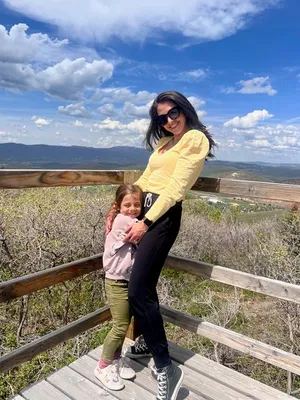Co-op vacation homes brings higher-price luxury vacation homes within reach to more
A growing number of homeowners are gaining access to luxury vacation homes that were out of their reach thanks to a co-operative ownership model that enables them to make a purchase with people they don’t know.
The concept of co-operative home ownership is not new, said Pacaso CEO and Co-Founder Austin Allison. But while it might be more typical for friends or relatives to pool their money to buy a property, then share in the costs, Pacaso allows you to make the purchase with strangers.
"You don’t have to know the other people because Pacaso is putting together the ownership group and managing all the little details associated with the process,” Allison said.
His company offers one-eighth shares of luxury vacation homes and then helps with “the entire process to make ownership seamless and turnkey, which means we handle everything from designing the homes to paying the bills, to providing an innovative scheduling software that enables owners to share access to the homes,” he said.
If a co-operative owner in a traditional model wants to sell, the others would have to buy that person out or sell the whole property, said Allison. “With Pacaso, we created a first of its kind co-ownership marketplace. So with Picasso, selling a share of a home is really not any different than selling a whole home.”
The seller chooses the resale listing price, based on recommendations from Pacaso on the value of that share and any increases in the market value of the house.
Co-operative model helps affordability problem
Pacaso was started in 2020 by Allison and Spencer Rascoff, former Zillow executives.
There is a housing affordability problem in the United States that is not going away with rising real-estate prices, said Allison.
“One of the main benefits of co-ownership is that you can afford a lot more home when you're sharing it with other people than you could afford on your own because a $250,000 share of Pacaso is a $2 million home, he said.

Buying shares in a home in a highly desirable vacation destination gives homeowners more buying power, said Stephen O’Connor, research professor of real estate and the chair of the Center for Real Estate and Urban Analysis at the George Washington University School of Business.
“Properties in these locations typically don't experience the kind of traumatic swings in values,” said O’Connor.
When you’re in the market for a luxury second home at a minimum of $250,000 or $500,000, using this type of co-operative model to buy shares makes a high-priced home "a bargain,” said O’Connor, who was not aware of Pacaso before USA TODAY reached out for comment but who was familiar with Rascoff as a successful entrepreneur in the real estate market.
O'Connor, who spent 30 years building houses, but whose research specialty is in affordable housing, acknowledged that co-operative luxury vacation home ownership is for a specific niche of consumers.
Pacaso shares can start at $250,000 and go up to $2.8 million, with the average share being $775,000, the company said. That can get an owner an eighth of a share of a home valued from $2 million to more than $22 million.
“When you’re looking at a traditional second home in a vacation area, whether it's Hilton Head or Cape Cod or some other places, it's tough to get in there for even a half a million dollars,” said O’Connor.
How does Pacaso work?
Pacaso now operates in 40 second-home destinations in the U.S., Mexico, Paris and London. Pacaso buys homes, decorates and furnishes them before listing them in eight separate shares. Buyers can buy up to half of the shares and can work via traditional realtors or directly via Pacaso, which partners with Realtors. Financing is also available.
Home ownership costs, such as property management, maintenance and taxes, are passed along directly to owners via Pacaso.
The company has sold about one billion dollars in total units and has about 1,500 owners and a few hundred properties, Allison said.
A scheduling system gives owners access up to 24 months in advance, but has rules that do not allow one set of owners to take all of the peak times, Allison said.

Is this a timeshare?
Pacaso co-operative home ownership is not a timeshare, said Allison. Timeshare owners are pre-paying for the right to use time at a hotel or resort property and often have difficulty in the resale market.
Pacaso offers partial ownership in a particular home and the ability to sell that share – and realize profit if the market has gone up in value – if an owner sells a share.
The company does not allow its owners to rent time in a Pacaso home to others via a short-term rental, so owners must use the home themselves or gift it to someone, Allison said. But because there is co-ownership of the home, there will be much less vacant time since other owners will be using their share of the home, he said. There is also a swap program that allows owners to trade time at their Pacaso home for another property, he said.
Co-operative ownership gives extended family access to vacation home
Nour Kasm, her husband and three kids enjoy going on multiple vacations a year. Annually in the spring during their kids’ “ski week” time off from school, the family has been traveling to Park City, Utah.
The family, from Newport Beach, California, began looking into buying a vacation home in Park City because rentals were getting so pricey, said Kasm.
"Honestly, with inflation and the kind of COVID effect (on pricing), it was just starting to get unbelievably expensive,” she said, even when the cost was divided amongst family and friends.
Some ski-in/ski-out homes, where you can go to and from the slopes directly from the house, were costing $40,000 a week, Kasm said.
When Kasm and her husband – who owns a private equity firm that specializes in commercial real estate – began shopping for a vacation home, they were quickly priced out of the market for something that could accommodate their family of five or their large extended family, she said.
Homes were either too small or way out of their price range, going for anywhere from $3 million to $20 million and above, Kasm said.

The couple was also concerned about buying a home and then having it year-round when they only wanted to be there a few times a year, Kasm said. They also ran into neighborhoods that had rules prohibiting short-term rentals, which could be a way to recoup some of their costs.
Change on the way:As spring homebuying season kicks off, a NAR legal settlement could shrink realtor commissions
Then they ran across a listing for a Pacaso home.
“We started reading more and we were like ‘Wow, I love this idea,’ ” she said. “It fulfills all of our needs and we can have access to a bigger home.”
They ran the numbers and decided to buy a share in a five-bedroom house in a prime location a year ago. “It literally was checking off all the boxes,” she said.
They liked the concept so much that they have since bought two more shares in Pacaso homes –in Cabo San Lucas and in Santa Barbara, California, where they split a share with their parents. The Kasms declined to share how much they paid for their shares.
Nour Kasm has been able to book several holidays and said she feels the system is fair. The owners have also been able to have a large extended family ski vacation with people coming in from all parts of the country to stay at their Park City vacation home.
Betty Lin-Fisher is a consumer reporter for USA TODAY. Reach her at blinfisher@USATODAY.com or follow her on X, Facebook or Instagram @blinfisher. Sign up for our free The Daily Money newsletter, which will include consumer news on Fridays, here.
Disclaimer: The copyright of this article belongs to the original author. Reposting this article is solely for the purpose of information dissemination and does not constitute any investment advice. If there is any infringement, please contact us immediately. We will make corrections or deletions as necessary. Thank you.






